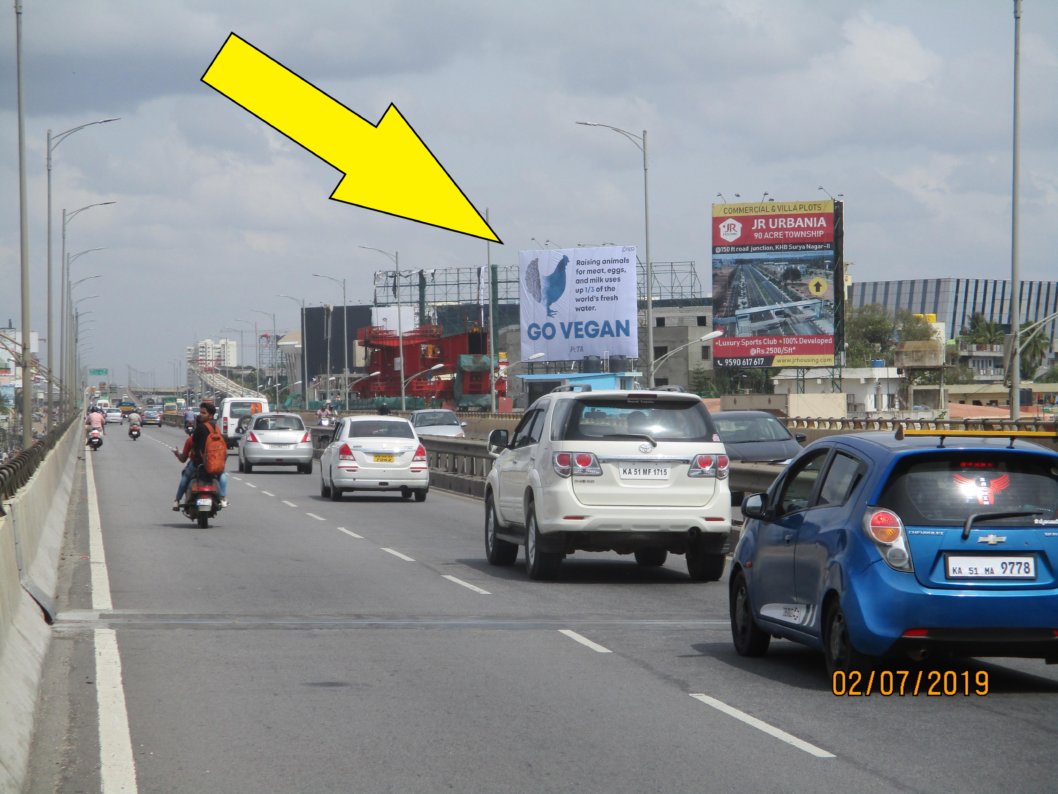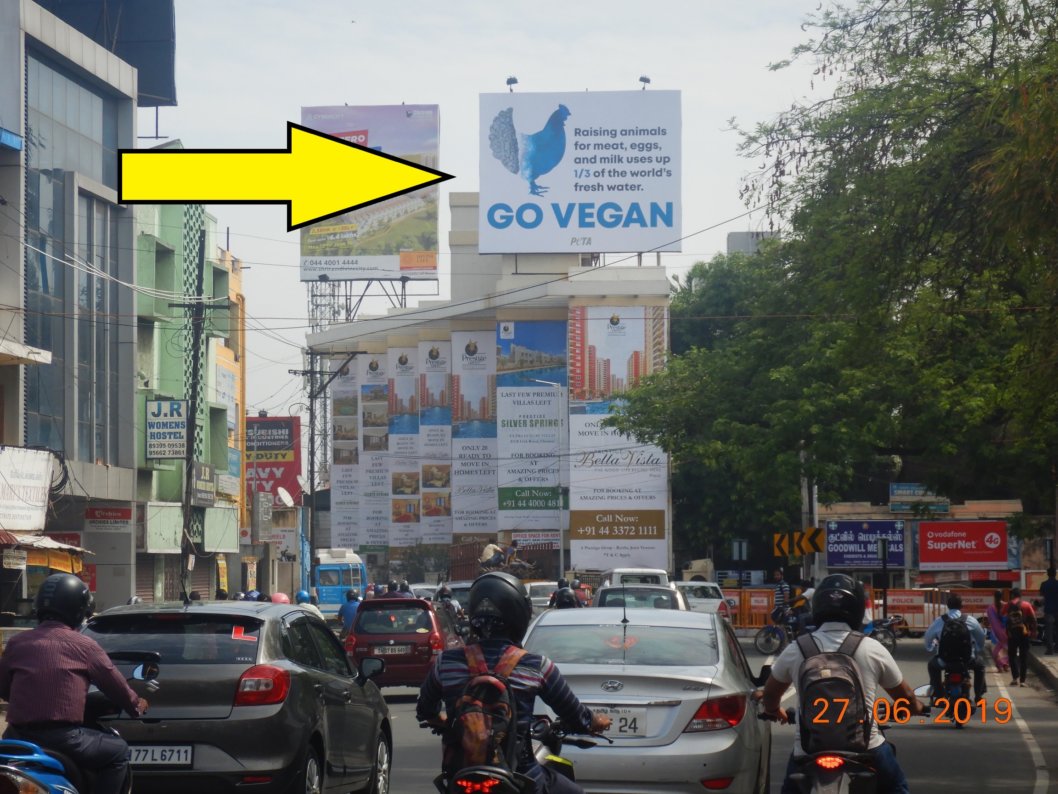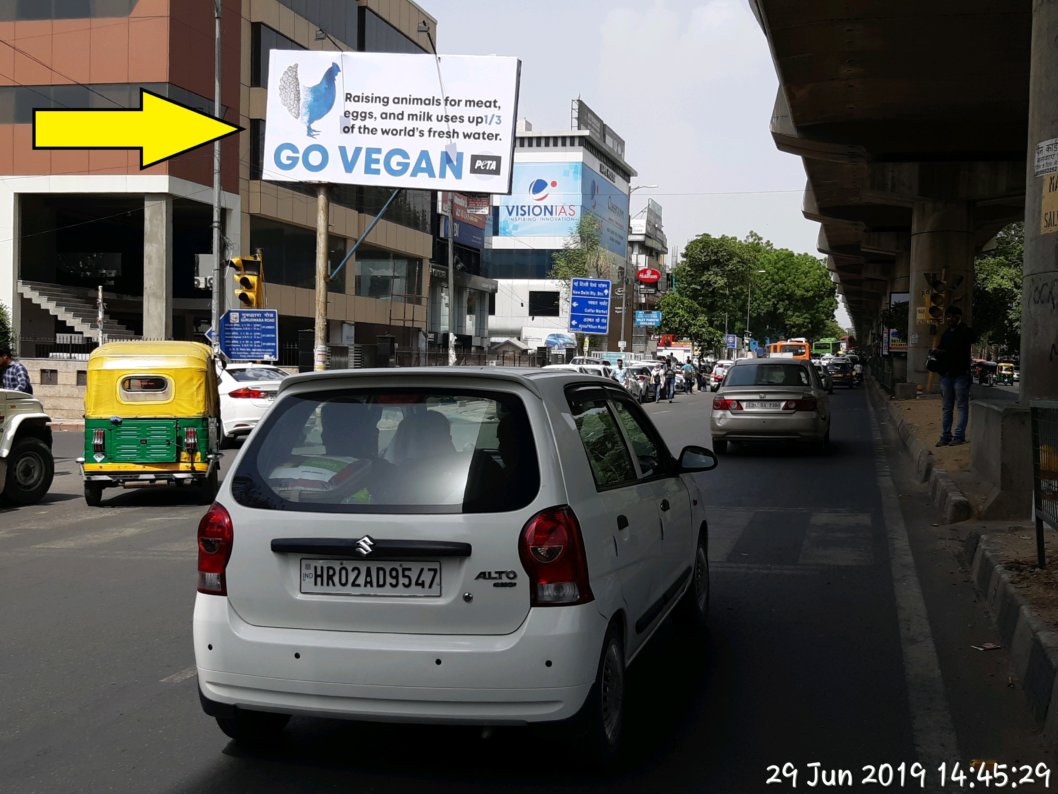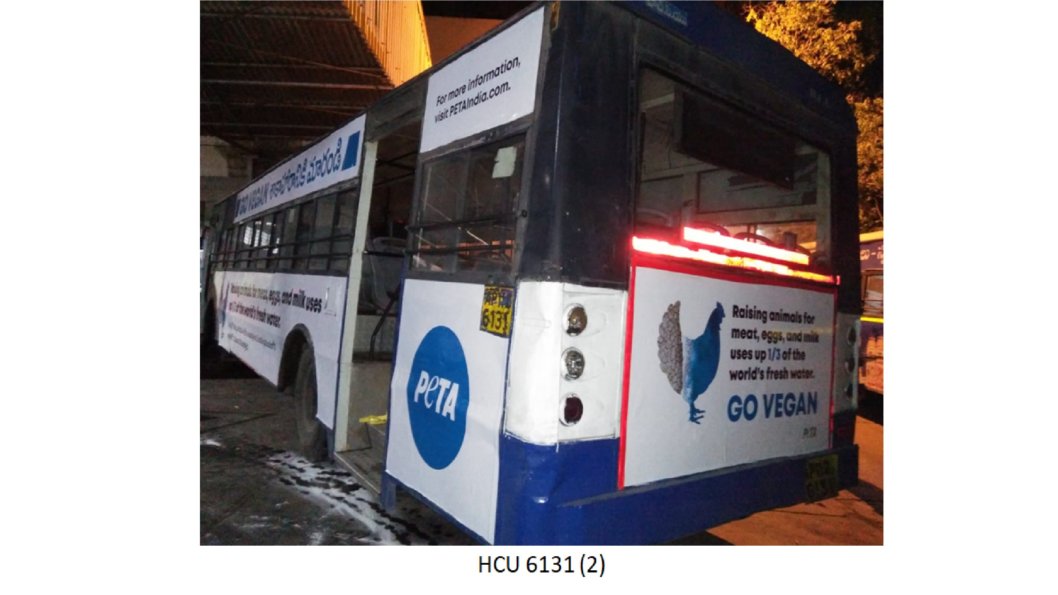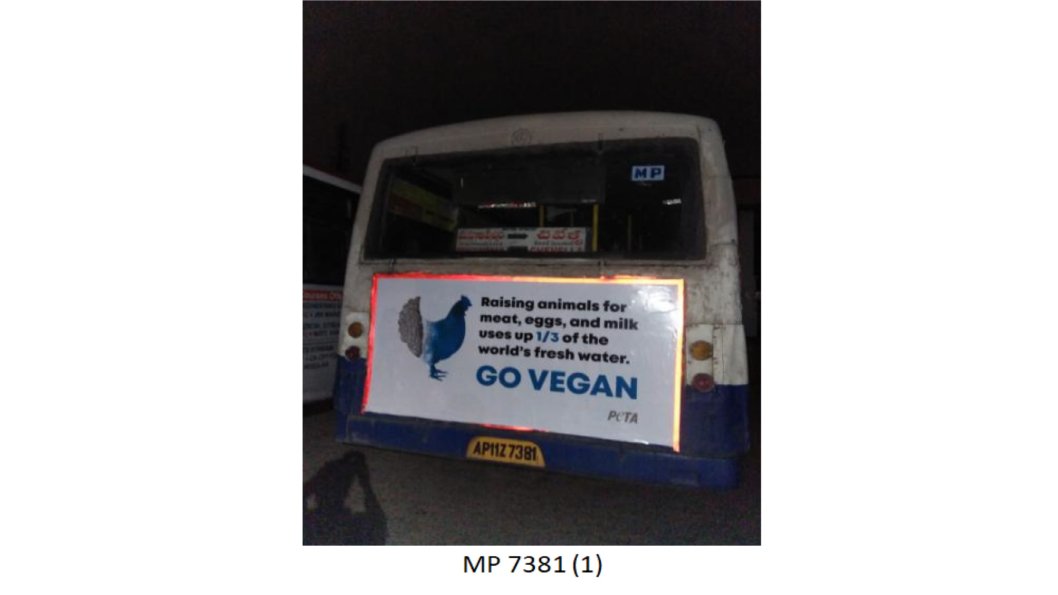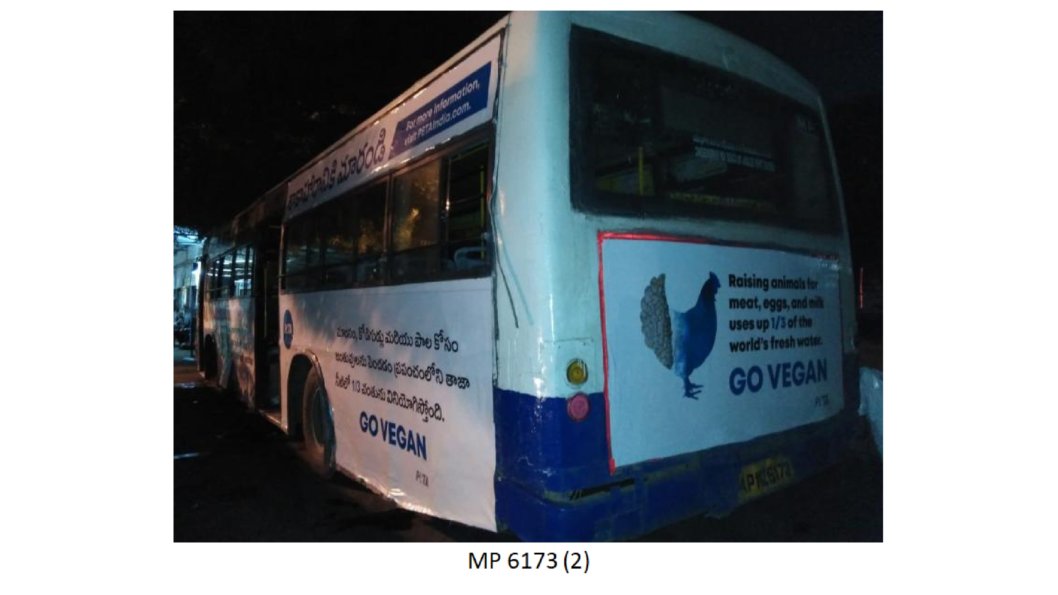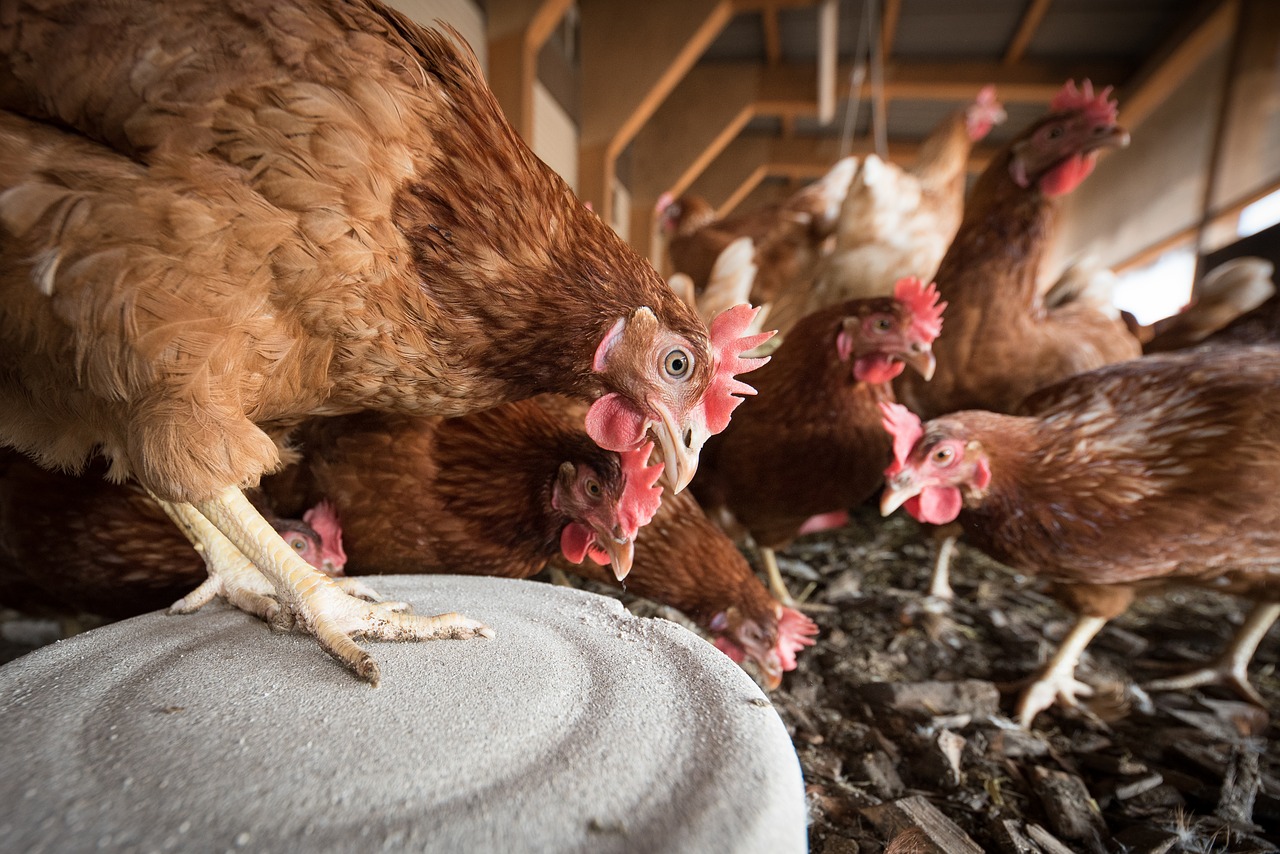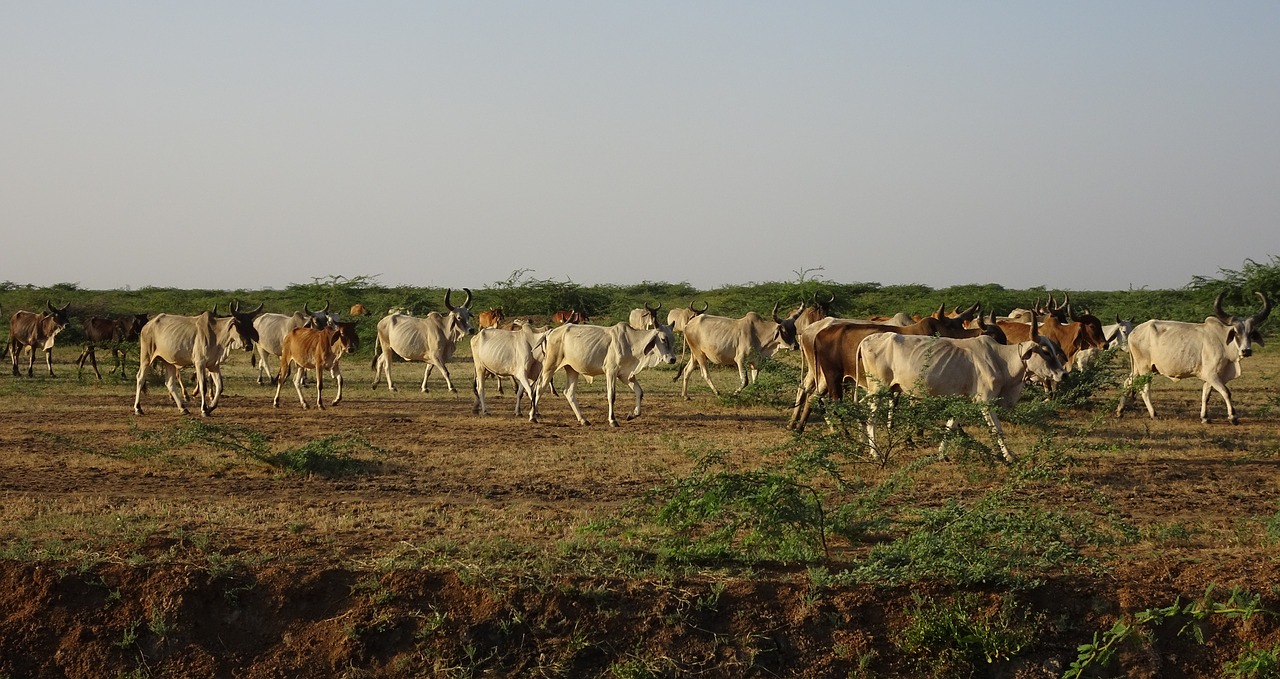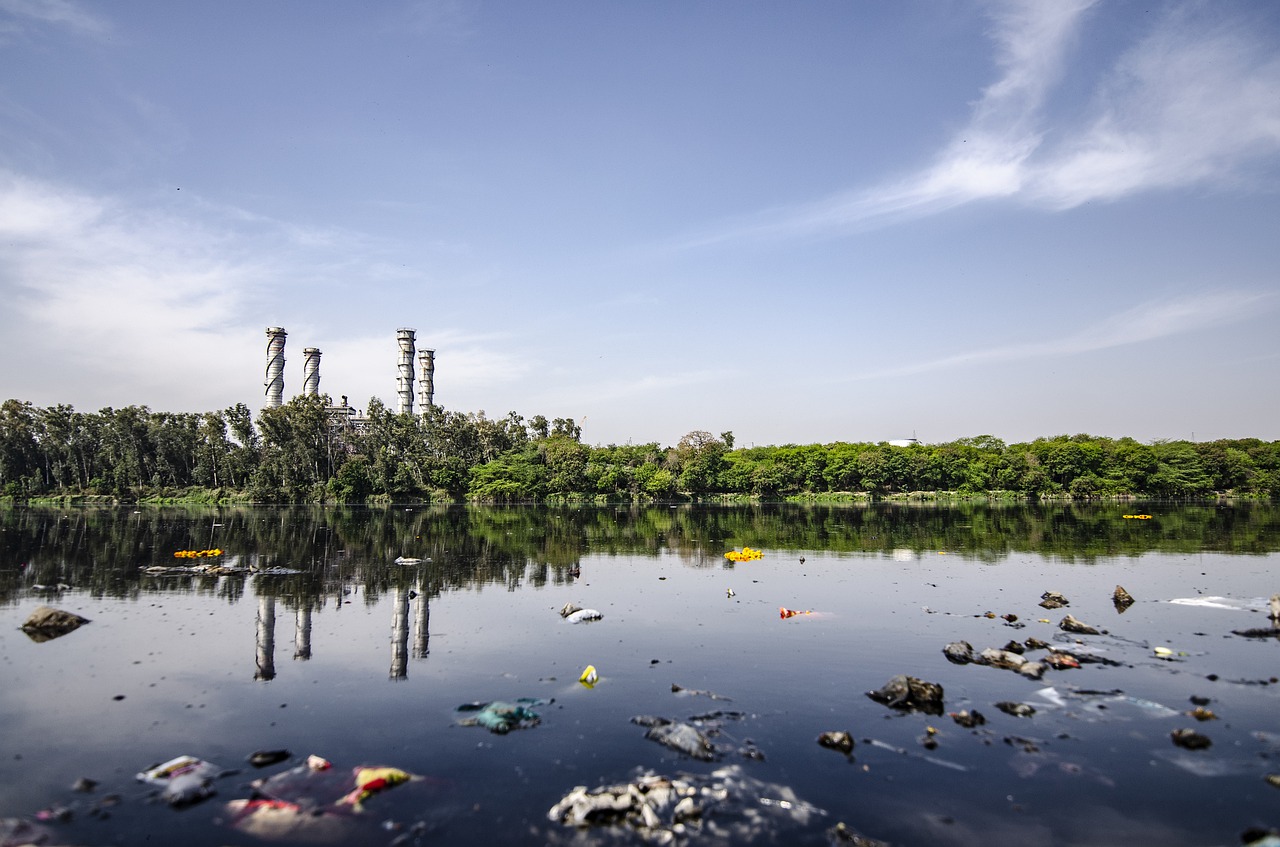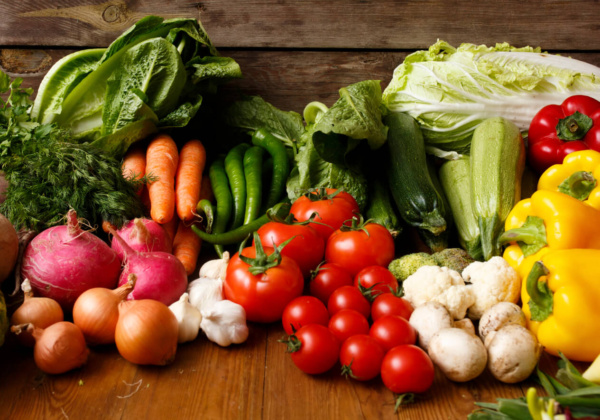How Animal Agriculture Contributes to Water Shortages, Climate Change
In light of the serious water shortage in Chennai, PETA India erected a billboard calling on people to go vegan in order to help conserve water. The sign points out that raising animals for meat, eggs, and dairy accounts for a third of the world’s freshwater consumption – a finding from a paper published by the American National Academy of Sciences.
PETA India has also placed the ad on billboards in Bengaluru, Delhi, and Nagpur and on buses in Hyderabad – these are among the 21 cities expected to run out of groundwater by 2020.
Estimates show that more than 163 million humans in India lack access to safe water and more than 190 million people go hungry, yet the meat, egg, and dairy industries are wasting massive amounts of water, grain, land, and other resources on animal agriculture.
Animal agriculture contributes to water shortages, pollution, climate change, and other environmental problems. Consider these five facts:
1. Animal agriculture drains the world’s water supply: Between watering the crops that farmed animals eat, providing billions of them with drinking water each year, and cleaning away the filth from farms, lorries, and slaughterhouses, the meat, egg, and dairy industries put a serious strain on the world’s water supply. According to the Water Footprint Network, it takes just 322 litres of water to produce 1 kilogram of vegetables – but it takes 1,020 litres of water to produce 1 litre of cows’ milk; 3,265 litres of water to produce 1 kilogram of eggs; and 15,415 litres of water to produce 1 kilogram of beef.
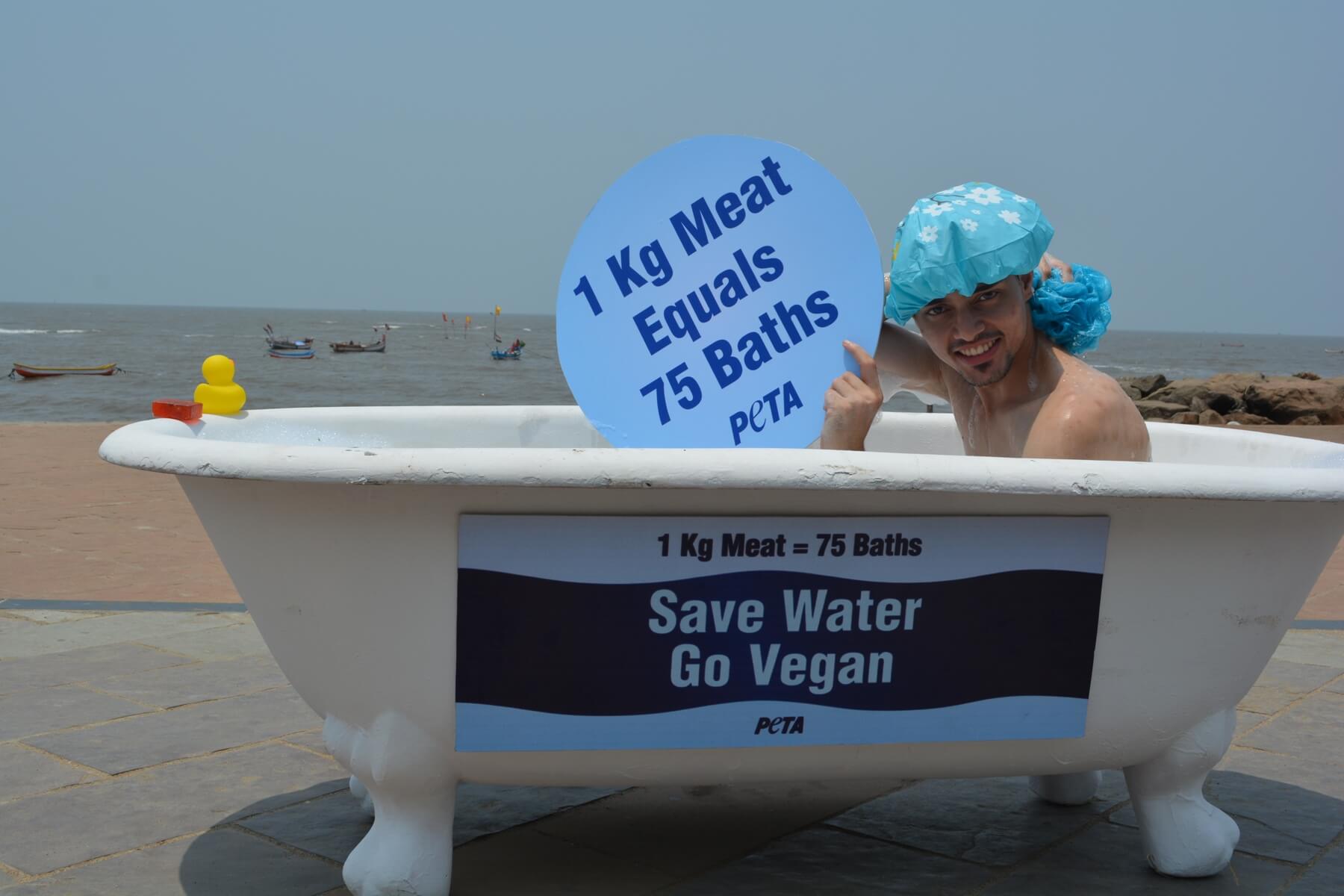
2. Animal agriculture mucks up our waterways: Much of the waste produced each year by all the cattle, buffaloes, sheep, goats, pigs, chickens, and other animals raised and killed for food in India winds up in the nation’s water. A Jammu and Kashmir State Pollution Control Board report warns that animal waste is chemically similar to domestic sewage but considerably more concentrated and that it pollutes streams and watercourses. Likewise, a report by the public policy group Brighter Green warns that animal waste and runoff from pesticides and fertilizers used for crops to feed animals spoil India’s waterways. Most slaughterhouses operate without any effluent treatment, so untreated waste ends up in the nation’s waterways and pollutes our diminishing groundwater.
3. Animal agriculture takes a toll on the land: The meat, egg, and dairy industries use a third of the world’s cropland, which could be used to feed hungry humans. It’d be more economical and efficient for humans to eat grains directly and not expend vast water resources on industry-bred animals.
4. Animal agriculture sickens humans: Animal-derived foods contribute to heart disease, cancer, diabetes, and other problems, and animal agriculture pollutes the air and ruins the quality of life for people who live near slaughterhouses. Researchers with Aligarh Muslim University asked people what it was like to live near slaughterhouses. About 58% of the respondents complained about drinking water contamination, 78% reported drains choked with blood and debris, 74% mentioned infection-spreading insects, 79% noted the pungent smell from the burning of fat and bones, and a whopping 98% disliked the foul odour.
5. Worldwide, animal agriculture is responsible for more greenhouse-gas emissions than is the transportation sector: India is one of the countries at “extreme risk” when the economic impact of climate change will be most keenly felt. We will likely see an increase in heatwaves, cyclones, and floods; a drop in crop production; a resurgence of several vector and waterborne diseases, and an increased risk to food, energy, and water resources. The World Bank expects climate change to cost India 2.8% of its gross domestic product and worsen living standards for almost half the nation’s residents by 2050 unless we take action. Climate change may also lead to wars over limited natural resources.
Fortunately, there is always hope. We can all help conserve resources, prevent pollution, and combat climate change and other environmental problems simply by going vegan. Study after study has shown that eating vegan foods rather than animal-derived ones will help protect the environment and alleviate hunger, not to mention reduce animal suffering. So if you haven’t already gone vegan, please order a free vegan starter kit.


